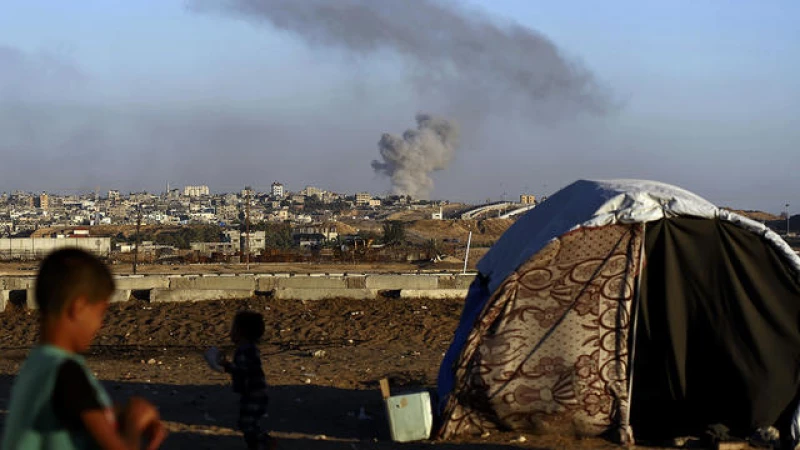Jerusalem — In response to a Hamas rocket attack that killed four Israeli soldiers, the Israeli military has reopened the Kerem Shalom crossing into Gaza. This crossing is crucial for the entry of humanitarian aid and had been closed over the weekend.
Following the attack, an Israeli tank brigade took control of the nearby Rafah crossing between Gaza and Egypt on Tuesday. While the Rafah crossing remains closed, this action does not signal the beginning of a full-scale invasion of the densely populated southern city, as Israel has previously indicated.
Despite the potential escalation, the United States, Israel's main supporter, has expressed concerns about the well-being of approximately 1.3 million Palestinians living in Rafah, many of whom have fled conflict in other areas. Israel argues that Rafah is the last stronghold of Hamas and insists that a broader offensive is necessary to dismantle the group's military and governance infrastructure.

A senior official from the Biden administration revealed to CBS News that the U.S. temporarily halted a weapons shipment to Israel last week due to apprehensions about how these weapons could be utilized in a potential ground operation in Rafah.
The White House position has been that Israel "should not launch a major ground operation in Rafah," the official said.
The halted shipment included 1,800 two-thousand-pound bombs, and 1,700 five-hundred-pound bombs, the official said.
The official said the White House was "especially focused" on the "end-use" of the 2,000-pound bombs and the "impact" those bombs could have in "dense urban settings."
"We have not made a final determination on how to proceed with this shipment," and other shipments are under review, the official disclosed.
The U.S. has historically provided Israel enormous amounts of military aid, which has only accelerated since the start of the war.
The U.S., Egypt and Qatar, meanwhile, are ramping up efforts to close the gaps in a possible agreement for at least a temporary cease-fire and the release of some of the scores of Israeli hostages still held by Hamas. Israel has linked the threatened Rafah operation to the fate of those negotiations.
Hamas said Monday it had approved of a cease-fire proposal presented by Egypt and Qatar, but Israel said what Hamas agreed to was "far from meeting Israel's core demands."
The recent shift in control of Gaza's border crossings has had a significant impact on the region. The Rafah crossing, a crucial point for humanitarian aid, is now under Israeli control, marking the first time since the country's withdrawal from the territory nearly twenty years ago. This change, in cooperation with Egypt, has left many stranded, including 46 patients and wounded individuals who were scheduled for medical treatment.
With Israel's increased control, U.N. agencies and aid groups have intensified their efforts to provide humanitarian assistance. Despite the opening of an additional crossing in the north, the closure of Rafah poses a threat due to its role as the primary gateway for fuel entry for trucks and generators. The U.N. has already declared a state of "full-blown famine" in northern Gaza, highlighting the urgent need for support.
The conflict that initiated this situation began with Hamas militants breaching Israel's defenses, resulting in casualties and abductions. While some hostages have been released, many are still held captive, underscoring the ongoing challenges in the region.
The conflict in Gaza has resulted in the loss of more than 34,700 Palestinian lives, as reported by Gaza health officials. Additionally, about 80% of Gaza's population, which consists of 2.3 million Palestinians, have been displaced from their homes due to the ongoing war. The military actions carried out by Israel have caused extensive destruction, leaving large parts of Gaza in ruins.
Despite repeated warnings from President Biden to Israeli Prime Minister Benjamin Netanyahu against initiating an invasion of Rafah, Netanyahu's coalition partners on the far-right have threatened to destabilize the government if he refrains from launching an offensive or makes significant concessions during the cease-fire negotiations.







